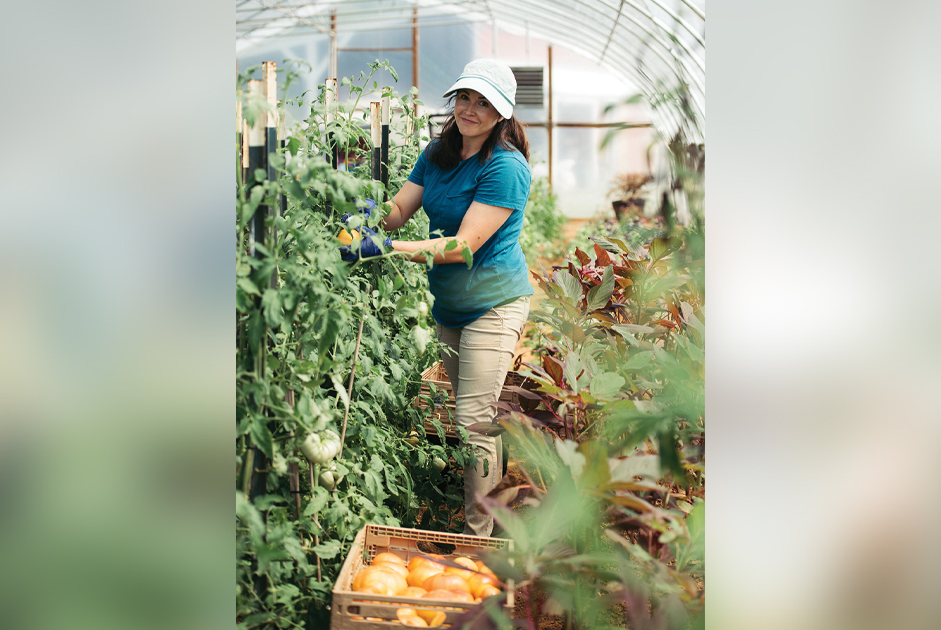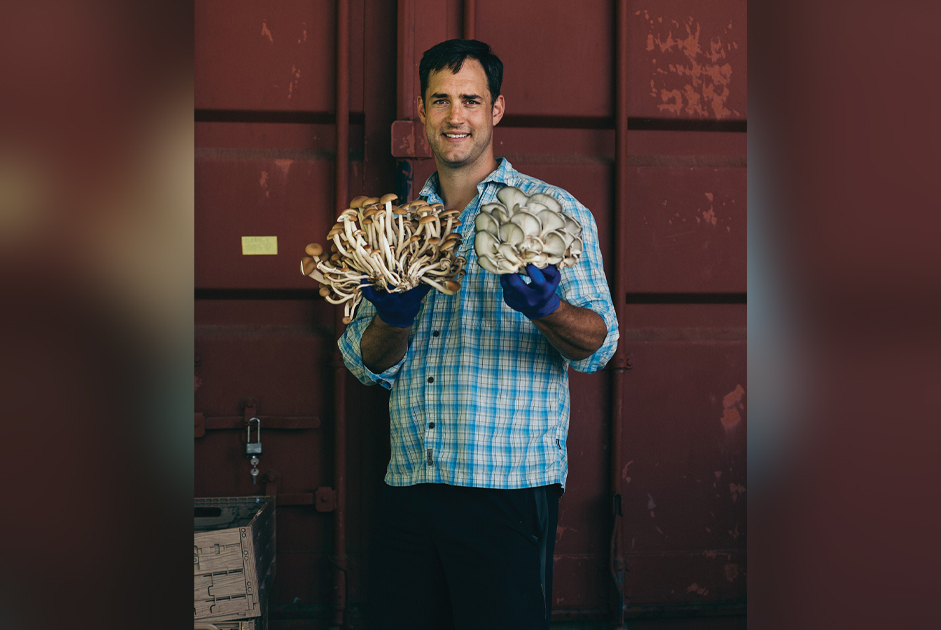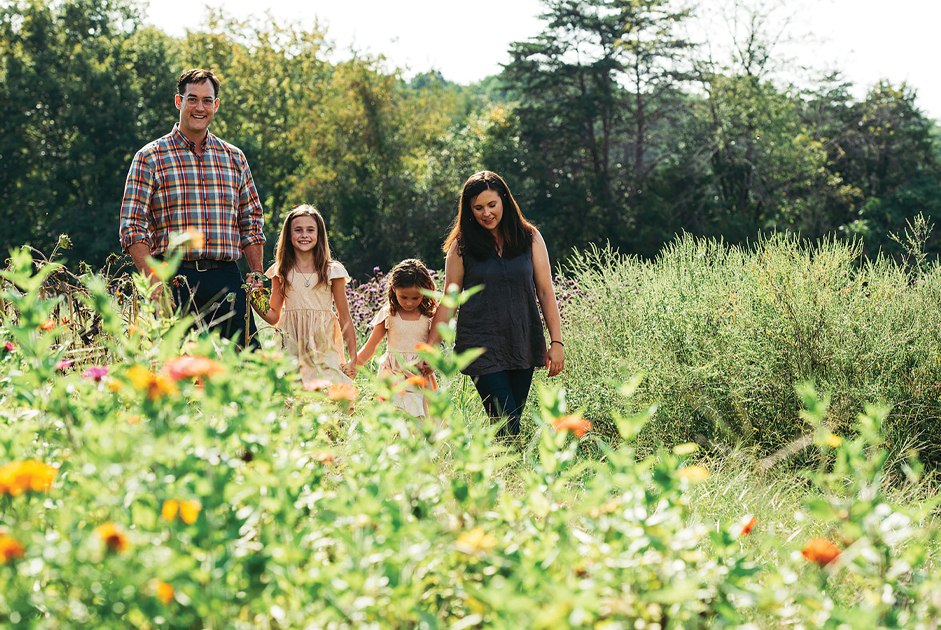You have likely heard the phrase “You are what you eat” and, in a literal sense, that is absolutely true! The nutrients received from the food we eat have a direct impact on the way in which our bodies make new cells to replace the old ones. Cells actually have an “expiration date.” For example, a red blood cell lives about four months, a skin cell about a month and a stomach cell only has a “shelf life” of about a day or two. The health of each cell is determined by what we put in our mouths. If a diet is full of highly processed foods that are low on nutrients and high on additives, colorings, flavorings, sweeteners and hormones, the body doesn’t have much to work with. However, eating whole foods that are minimally processed (if at all) and come as directly from nature as possible, creates healthy cells that work optimally and make us less susceptible to disease and premature aging. Think nourishment. Think one-word ingredients like lentils, avocados, almonds and spinach.
Until relatively recently, farming was a mostly organic industry (food grown using no synthetic fertilizers and pesticides); but, in an effort to keep up with the rapid population growth and make farming more efficient and lucrative, conventional agriculture ramped up and began relying on synthetic chemicals, gene manipulation techniques, etc. to increase yield. In the process, unintended consequences arose – degradation of the natural environment, deteriorated soil quality and the elimination of biodiversity (USDA.gov). America desperately needs a better, reliable, cost-effective and practical way to feed its citizens healthier food. Enter sustainable agriculture! As defined by USDA.gov, “Sustainable agriculture is farming in such a way as to protect the environment, aid and expand natural resources and make the best use of nonrenewable resources.” Sustainable farming offers solutions to the myriad problems embedded within the conventional agricultural system and provides a pathway to create a robust agricultural structure and safeguard the future. It is, in many ways, a return to a more traditional way of farming centered on healthy food and protecting the environment.

And yet, small family farms with their iconic barns and sprawling rural landscapes have been disappearing at an alarming rate since the 1970s. Due in part to challenging economic conditions, frequently referenced as “asset rich, cash poor” and the fact that younger generations are opting for bright city lights and high-paying jobs over running the family farm, an estimated 100 family farms close each week. Knowing that sustainable farming can make a significantly positive difference in the quality of our lives (e.g. uses up to 56% less energy per unit of crops produced and creates 64% fewer greenhouse gas emissions per 2.5 acres) suggests it is past time to rise up, learn all we can and encourage more and more forward-thinking individuals to have a go at sustainable and regenerative agriculture.
“We experienced a broken food system and had a passion to become a meaningful part of its change.”
Claire Parrish, Heritage Harvest Farms
At a recent Old Salem Garden Club meeting, Claire Parrish of Heritage Harvest Farms, Stemz and Kardin Supply shared about the importance of sustainable and regenerative agriculture and the journey she and her husband, Drew, took when they decided to roll up their sleeves and restore their seventh generation family farmland. When asked why this venture was so important, Claire responded, “After my grandfather passed away, the farm fell fallow. My husband and I felt drawn back to the family farm to reset and restart, with hopes of creating meaningful connections with the community around us, as it had been in the past.” This NC Century Farm, originally founded in the 1860s, has been beautifully restored and, today, offers a host of delicious and optimally nutritious foods, fungi, flowers, honey and wellness products. Not only are Claire and Drew sustainable farmers, they are also certified beekeepers, mushroom foragers and cultivators, licensed hemp growers, collaborators with area restaurants and partners with the best of the best in the local farming community (click on SHOP NOW at heritageharvestfarms.com to shop). Customers can opt for home delivery, self-pick up at the farm or from one of their local partner locations.

Heritage Harvest Farms Products:
- Heirloom Food: Food grown from the non-GMO seeds of generations past are more nutritious & flavorful vs. grocery store varieties bred solely for shelf-life and shipping. Heritage Harvest has locally grown food available for purchase year-round via subscription service or a la carte.
- Culinary Mushrooms: Multiple varieties including Lion’s Mane, Shiitake, Oyster and A great source of vegan protein and packed with essential vitamins and minerals.
- Flowers: The connection between flora and wellness is fascinating. A huge variety of unique perennial and annuals are available each season, with flower subscriptions or a la carte.
- Functional Mushroom Extracts and Full Spectrum CBD Wellness: Curated variety of options may relieve a multitude of issues naturally. Mushroom extracts can support the immune system, reduce inflammation, promote relaxation and help manage stress. CBD oils focus on relief from pain, anxiety, insomnia, gut issues and much more.
- Local Raw & Creamed Honey: Delicious and packed with benefits (e.g. counteracting environmental allergens and enhancing digestive health).
- Wellness Honey: Mushroom extracts infused into raw honey. Each of the broad spectrum full-double extracts promote homeopathic wellness.
- Visit @heritageharvestfarmsnc, @findstemz and @kardinsupply for more information.
- Join weekly mailing list and support by visiting heritageharvestfarms.com
Stewarding wellness through sustainable agriculture.
Heritage Harvest Farms



















